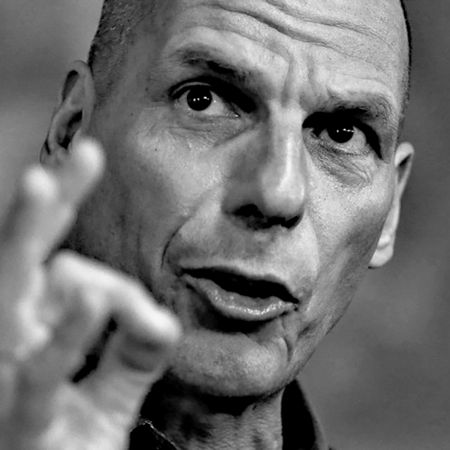A malevolent demon seeking to maximise European disunity could not have calibrated better the manner in which Covid-19 hit Europe. Italy, still the hardest-hit EU economy a decade after the euro crisis – with the lowest growth potential, the largest public debt, the least fiscal space, and the most fragile of politics – has suffered an appalling human toll from the pandemic. The economic implosion caused by the pandemic will spread the suffering even further.
Likewise, Spain, whose people endured terrible unemployment and heart-wrenching home repossessions following the euro crisis, became an epicentre of the coronavirus. As for Greece, although the death toll, fortunately, has been low, the decimation of the tourist income on which our economy depends comes on top of a decade-long crisis that had already mired us in a mind-numbing depression.
Meanwhile, the countries with the most robust finances have suffered the least on the health and economic fronts.
As the outbreak in Europe worsened, nine heads of eurozone governments called for the issuance of “coronabonds” to help spread more evenly across Europe the additional debt governments will incur as they struggle to replace disappearing private incomes. Given that, unlike Japan, Britain, and the United States, Europe lacks a central bank capable of financing stricken governments directly, Eurobonds would ensure that the burden of new debt does not fall on the shoulders of those least able to bear it.
The idea for such bonds is neither new nor complicated. What is new is that, during this pandemic, the call for Eurobonds was couched in terms of solidarity with the stricken southerners.
As some of us anticipated before the critical meetings of the Eurogroup of eurozone finance ministers, it was never going to happen. Predictably, coronabonds were given the kiss of death at the Eurogroup meeting on April 9, putting the idea of Eurobonds on the backburner for years to come, perhaps forever.
The outcome isn’t hard to explain. The nine heads of government gambled that their portrayal of the bonds as the financial embodiment of European solidarity would win the day. It was a bad bet.
Much has been made of the fierce resistance to Eurobonds by Wopke Hoekstra, the Dutch finance minister, who at the meeting vetoed any and every idea involving a modicum of common European debt. A majority of commentators west of the Rhine and south of the Alps have admonished Hoekstra as a heartless northerner for whom solidarity is meaningless. The geographical and emotional division of Europe was never as stark as it is today.
Alas, Hoekstra is right: Solidarity is a poor justification for Eurobonds or any other form of debt mutualisation. When I encounter suffering individuals or communities, I may feel compelled to give money, offer shelter, or provide a large, long-dated, cheap loan when no bank will help. That’s solidarity. But solidarity does not, and cannot, compel me to go into debt with them.
By appealing to solidarity to support their call for Eurobonds, the nine heads of government lost the argument before it started. Jack has no right to demand that Jill, out of solidarity, jointly takes out a loan with him. Even Jack will hardly think it is unfair that Jill has every right to veto his proposal.
And so the Eurogroup buried Eurobonds. Instead, the stricken countries were offered €27.7-billion ($30.1-billion, or 0.22% of eurozone income) in direct aid and a few hundred billion euros worth of loans.
Critics of the “frugal” northern EU governments point out some striking disparities. The German government’s domestic fiscal stimulus is an impressive 6.9% of GDP, even higher than that of the US (5.5% of GDP). In contrast, the Italian and Spanish governments, confronting health systems and economies that have been affected much more horrifically, could afford fiscal stimuli of only 0.9% and 1.1% of GDP, respectively. Is this not evidence of solidarity’s disappearance?
Perhaps it is. But suppose for a moment that, out of solidarity, Germany were to share its stimulus with the southern countries that lacked its fiscal space. The macroeconomic benefit would be negligible because the German monies would be spread too thinly across the rest of the eurozone. In short, solidarity is not only a poor argument for Eurobonds; it is also a macroeconomically irrelevant policy. Worse, calls for more of it are likely to be self-defeating to the extent that they divide Europe further and destroy what solidarity there is.
Long before Covid-19 appeared, northern Europeans feared that indebted southerners were looking for excuses to lay their hands on the northerners’ savings. Being lectured on the meaning of solidarity is bound to reinforce this suspicion. The task of unifying Europe and preventing its disintegration will, therefore, be well served by abandoning talk of solidarity and appealing, instead, to rationality.
Dutch and German savers need to recognise that their savings would be much, much lower had indebted Italians, Greeks, and Spaniards not shared the euro with them. After all, it is southern deficits that keep the euro’s exchange rate low enough for Germany and the Netherlands to maintain their net exports. Eurobonds’ merit thus has nothing to do with solidarity. By shifting debt from deficit countries to a strong Union and, in the process, shrinking total eurozone debt (thanks to the lower long-term interest rates implied by the EU’s greater creditworthiness), Eurobonds would keep a country like Italy in the euro – thereby preventing Dutch and German savings from vanishing.
Adam Smith put it best back in 1776: “It is not from the benevolence of the butcher, the brewer, or the baker that we expect our dinner, but from their regard to their own self-interest.” Similarly, today, Eurobonds and a change of the eurozone’s ridiculous rules will never come by addressing ourselves to the “benevolence” of those with surpluses. The way to avoid northern vetoes is to appeal to what Smith would call their “self-love,” while making it clear that self-harming northern policies also will be vetoed. BM
Copyright: Project Syndicate, 2020.




